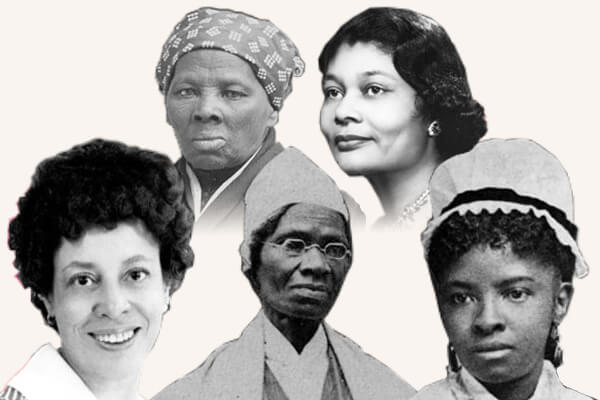Written by Allison Lennartz, RN
Near the end of February 2020, I stood in a meeting room listening to one of our facility’s lead doctors work her way through a presentation about the specifics of the Covid-19 virus that was beginning to spread rapidly around the world. On that given day, this “novel virus” we were learning about seemed like a distant problem, one that would potentially never make its way to our small town in Texas. Once the meeting ended, I went back to my desk and started my work for the day, trying to convince myself that everything was going to be fine. But, I slowly felt a sense of dread begin to rise. No matter how hard I tried to suppress the thought, I knew that Covid-19 probably wouldn’t remain distant for much longer.
Close To Home
I remember the first patient who tested positive for Covid-19 at our clinic. He ended up recovering, but some patients weren’t as fortunate. Our primary care staff wasn’t regularly dealing with critically ill covid patients, but we were seeing a small glimpse of the misery our hospital counterparts had to be facing. Patients flooded our phone lines and physically knocked on our doors when they were acutely ill because they could not get into the hospital due to long wait times and insufficient supplies.
I will never forget talking on the phone with a covid positive patient who was struggling to breathe. She began to cry and told me she didn’t want to die. I felt speechless, simultaneously realizing how powerless I felt at that moment. I couldn’t make her any promises or guarantee that she would live. All I could do was tell her that we would do everything we could to help her and ask her to keep fighting. This was only one of a handful of experiences that left me feeling completely helpless and heavily burdened for other nurses and healthcare providers who were facing far worse in more acute settings.
Already At Risk
As the days and weeks turned into months and years, I began to see that the pandemic had deep emotional effects on nurses. Those who survived were plagued by memories and trauma from what they witnessed in its wake. Although I was spared from many such memories, I know plenty of nurses who were not. A friend from nursing school texted in a group message, “Nursing school didn’t prepare us for this.” Unfortunately, I believe she is right. Studies conducted prior to the Covid-19 pandemic indicated that nurses were already at risk for signs and symptoms of Post Traumatic Stress Disorder (PTSD), a psychological disorder that can develop when someone has experienced significant (or repetitive) trauma and stress. Common symptoms experienced include recurring memories or flashbacks, memory impairment, and feelings of hopelessness. Some may also exhibit irritability, emotional outbursts, and difficulty sleeping. Nursing is already a difficult job and it only becomes worse if a nurse has to manage PTSD symptoms on top of daily challenges.
The Perfect Storm
Apart from being more at risk for developing PTSD, nurses faced staffing shortages long before the beginning of the pandemic. Once Covid-19 slammed into hospitals across the globe, a bad situation turned into a desperate one. Hospitals didn’t have the resources, or the staff, to adequately attend to the masses of people who needed a higher level of care. What resulted from this was a literal nightmare for anyone who was part of providing direct patient care in the hospital setting. In places such as New York, nurses were recruited from all over the country because their facilities were so overwhelmed and understaffed. The pandemic may have served to offer perpetual job security to every nurse on the planet, but it also increased their risk of developing PTSD and drove many to consider leaving the profession entirely.
What The Future Holds
We may never know all the ways that Covid has changed, and continues to change, the world. However, it has certainly impacted nurses and the healthcare workforce in a unique way. Steps can be taken to ensure that nurses are educated regarding their risk of PTSD, as well as identifying the signs and symptoms. Employers and facilities should prioritize providing resources such as counseling, classes, and peer support groups to decrease the risk and recurrence of PTSD. They could try to connect nurses with counselors and therapists who specialize in trauma or help them explore treatment options such as Eye Movement Desensitization and Reprocessing (EMDR). This form of therapy can decrease the intensity or frequency of flashbacks while increasing one’s psychological resilience when faced with situations or reminders of previous trauma. Now more than ever, there are options available to help us cope with the seemingly endless challenges we’ve faced in the past two years. The bottom line is, no nurse is fighting this battle alone. We need to do everything within our power to help ourselves and others learn effective ways to accept and process the ways Covid has impacted our lives. If we manage to care for ourselves and each other well, I believe we will emerge even stronger than we were before.
References
https://voice.ons.org/news-and-views/ptsd-is-more-common-among-nurses-than-you-may-realize
https://www.nursing.upenn.edu/nhhc/workforce-issues/where-did-all-the-nurses-go/
https://www.psychiatry.org/patients-families/ptsd/what-is-ptsd
About the Author
Allison Lennartz, RN, works at an addictions rehabilitation facility near Austin, Texas. She enjoys spending time with her loved ones, soaking up the sun in her kayak, and reading for pleasure!




